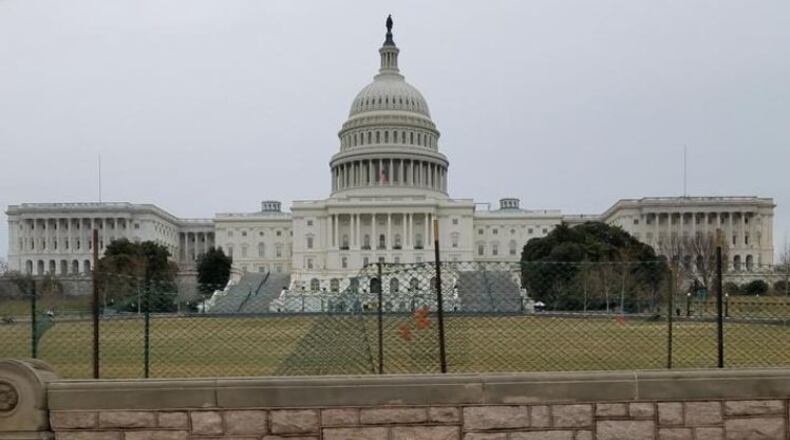Ending months of negotiations, Senate leaders on Wednesday announced an agreement with the White House to do away with restrictive budget limits for both the Pentagon and domestic spending programs, as the plan will add nearly $300 billion to the federal budget over the next two years.
"This bill is the product of extensive negotiations," said Senate Majority Leader Mitch McConnell. "No one would suggest it is perfect, but we worked together to find common ground."
I believe we have reached a budget deal that neither side loves, but both sides can be proud of," said Senate Democratic Leader Charles Schumer.
Lawmakers said domestic programs would see an increase of about $131 billion - but much of that would go into infrastructure, money for the opioid epidemic, and more - while the military would get almost $165 billion in new funding over two years.
In a speech on the Senate floor, Schumer rattled off a series of programs that would see extra money:
+ $2 billion for research at the National Institutes of Health
+ $20 billion for infrastructure
+ $4 billion for college affordability
+ $6 billion to fund the fight on opioids
+ $4 billion for work on veterans hospitals and clinics
The quick review from budget hawks in the House was not receptive.
"This spending proposal is disgusting and reckless," said Rep. Justin Amash (R-MI) "I urge every American to speak out against this fiscal insanity."
"I'm not only a no, ,I'm a hell, no," said Rep. Mo Brooks (R-AL).
"It's like the second largest spending increase in the last decade - second only to the Obama stimulus package," said Rep. Jim Jordan (R-OH). "And we all know how obnoxious that was."
Full details were not immediately available, as GOP lawmakers said the plan would also include $100 billion in budget savings.
Senate leaders also said the agreement would pave the way for approval of nearly $90 billion in disaster aid for areas hit hard by hurricanes and wildfires in recent months.
Lawmakers from Texas and Florida have been urgently pressing for action on that, arguing as well for more relief for Puerto Rico and the U.S. Virgin Islands.
This deal did not include any agreement about immigration enforcement, DACA or illegal immigrant "Dreamers" - McConnell reiterated that he would allow a debate to go forward on that subject next week on the Senate floor.
Meanwhile, House Democratic Leader Nancy Pelosi was engaged in a filibuster of sorts on the floor of the House, speaking at length on the need for a vote there on the DACA issue.
"Our Dreamers hang in limbo," Pelosi said, as she demanded that GOP leaders set a vote. "The Republican moral cowardice must end."
The deal will also include an increase the debt ceiling through March of 2019 - after the mid-term elections.
Lawmakers in both the House and Senate were being briefed on the details, which had been closely guarded for days, as Senators McConnell and Schumer worked out the final numbers.
The goal would be to approve the outline of the agreement this week, and give the House and Senate Appropriations Committees until mid-March to work out all the details for 2018.
About the Author


